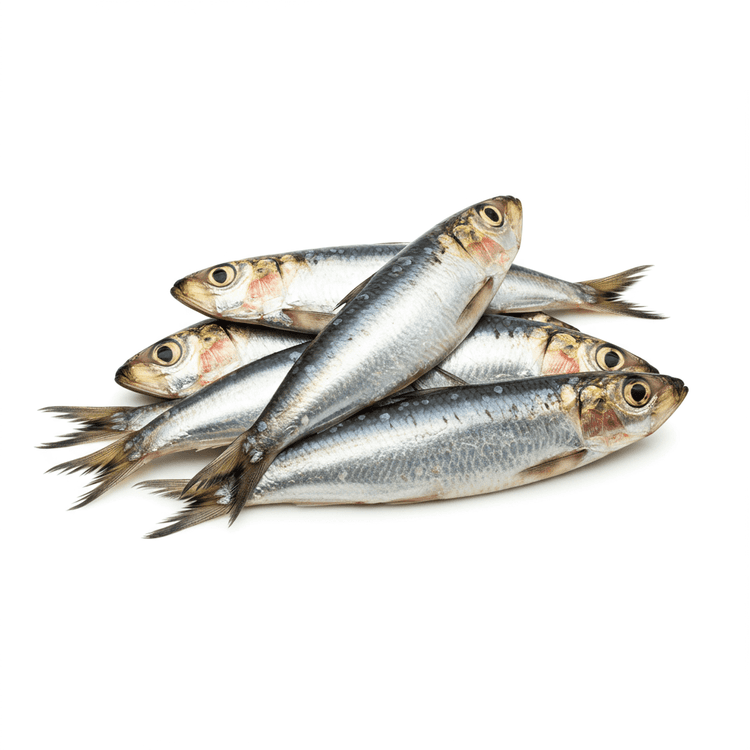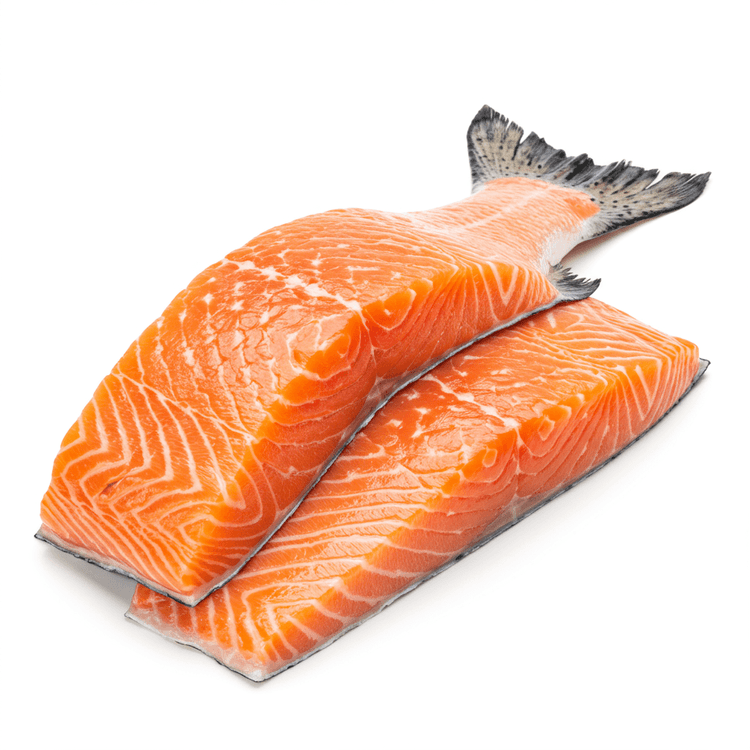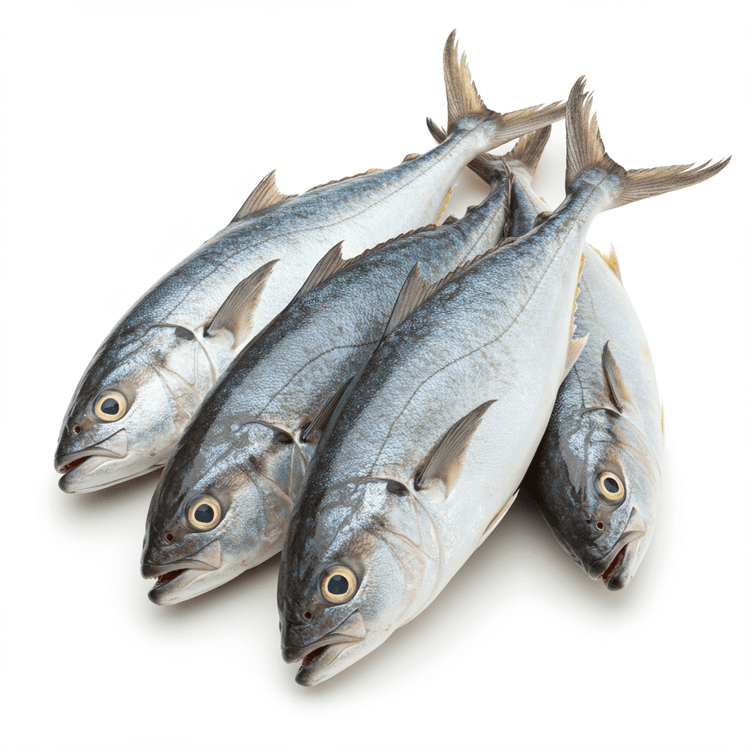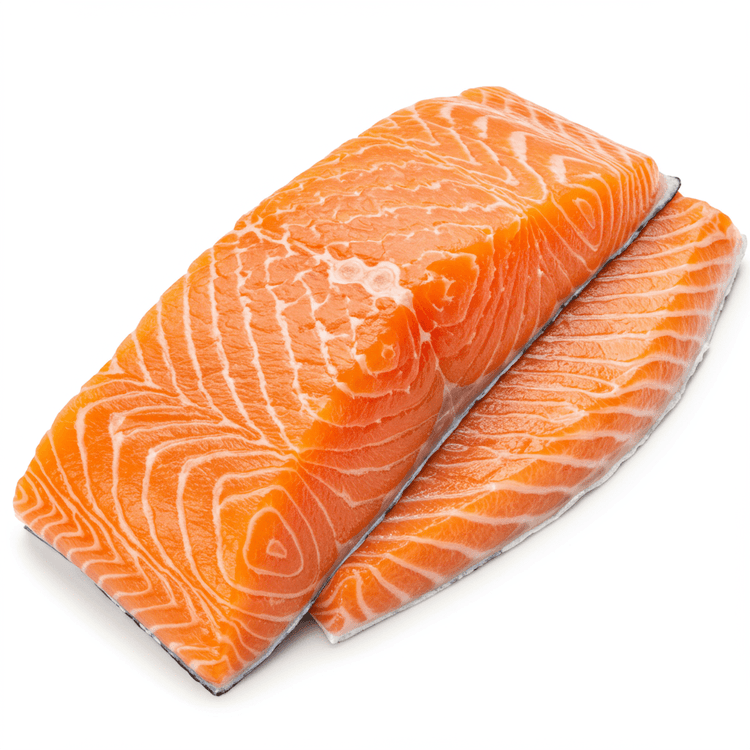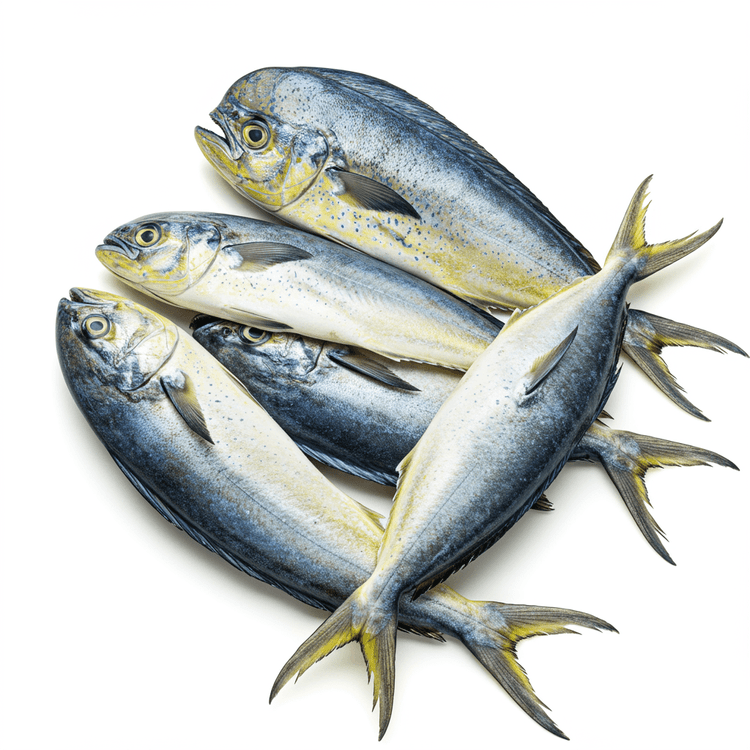
Tuna
Tuna is a versatile saltwater fish prized for its meaty texture and rich, savory flavor. Available fresh, canned, or frozen, tuna ranges in color from light pink to deep red, depending on the species and fat content. Its firm flesh makes it ideal for grilling, searing, and sushi, while canned tuna offers a convenient and affordable source of protein. Whether you're looking for a healthy meal option or a flavorful ingredient for your next culinary creation, tuna delivers a satisfying and nutritious experience.
Common Uses
- Tuna steaks are excellent grilled or pan-seared to medium-rare, allowing the inside to remain tender and flavorful. Serve with a squeeze of lemon and a side of roasted vegetables for a complete meal.
- Canned tuna is a convenient addition to salads. Flake the tuna and combine with mayonnaise, celery, and onion for a classic tuna salad sandwich filling or topping for a green salad.
- Tuna is a popular choice for sushi and sashimi. High-quality, sushi-grade tuna can be sliced thinly and served raw, showcasing its vibrant color and delicate flavor.
- Tuna can be used in pasta dishes. Add flaked tuna to tomato-based sauces or creamy Alfredo sauces for a protein-rich and flavorful pasta sauce.
- Tuna is a great ingredient for making patties or burgers. Combine cooked tuna with breadcrumbs, eggs, and seasonings, then shape into patties and pan-fry or bake for a healthy and delicious meal.
- Use tuna in casseroles: Tuna casserole is a comforting dish. Combine tuna with pasta, vegetables, and a creamy sauce, then bake until bubbly and golden brown.
Nutrition (per serving)
Nutrition (per serving)
Calories
130.0kcal (6.5%)
Protein
29.1g (58.3%)
Carbs
0.0g
Sugars
0.0g
Healthy Fat
1.4g
Unhealthy Fat
0.4g
% Daily Value based on a 2000 calorie diet
Nutrition (per serving)
Calories
130.0kcal (6.5%)
Protein
29.1g (58.3%)
Carbs
0.0g
Sugars
0.0g
Healthy Fat
1.4g
Unhealthy Fat
0.4g
% Daily Value based on a 2000 calorie diet
Health Benefits
- Excellent source of omega-3 fatty acids, promoting heart health and reducing inflammation.
- High in protein, essential for muscle building and repair, as well as overall body function.
- Rich in vitamin D, crucial for bone health and immune system support.
- Contains selenium, an antioxidant that helps protect cells from damage and supports thyroid function.
- Provides B vitamins, important for energy production and nerve function.
- May improve cognitive function and reduce the risk of age-related cognitive decline due to its omega-3 content.
Chefadora AI is here.
Experience smarter, stress-free cooking.
Storage Tips
Fresh tuna should be stored in the refrigerator, ideally on a bed of ice to maintain its temperature. Wrap it tightly in plastic wrap or place it in an airtight container to prevent it from drying out and absorbing odors. Use fresh tuna within 1-2 days for optimal quality. Canned tuna should be stored in a cool, dry place at room temperature. Once opened, transfer leftover canned tuna to an airtight container and refrigerate for up to 3-4 days.
Marnirni-apinthi Building, Lot Fourteen,
North Terrace, Adelaide, South Australia, 5000
Australia
